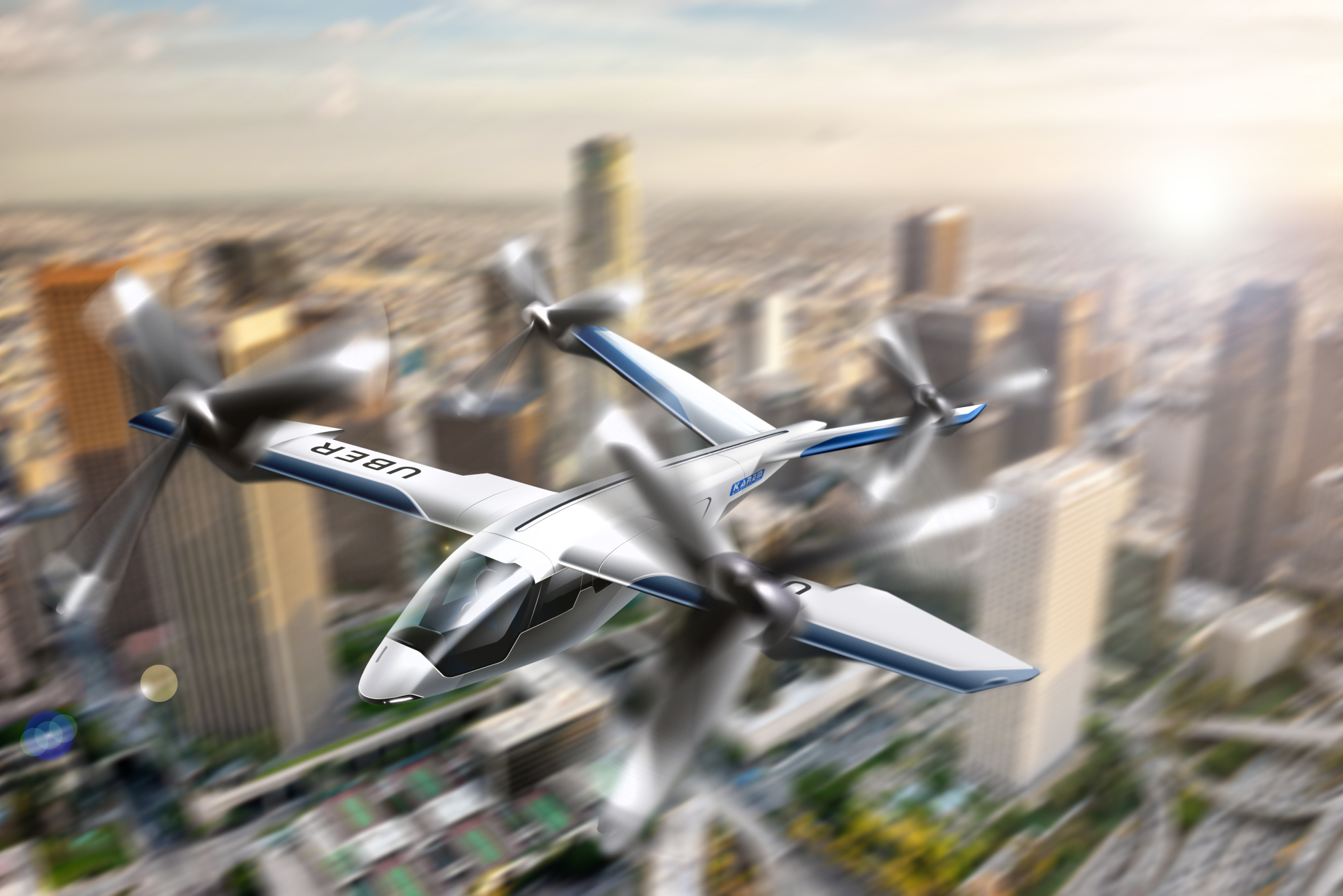Karem Aircraft Inc., founded by the inventor of the predator drone, said Tuesday that it’s developing a flying vehicle for Uber Technologies Inc.’s envisioned network of electric air taxis. That makes Karem the fifth company working on the project, with its new aircraft called the Butterfly.
While Uber isn’t building its own flying cars, the company has released three sets of design ideas as it pushes partners to experiment with new types of vehicles. Even the name for these new machines doesn’t seem certain. Uber Chief Product Officer Jeff Holden said onstage at the Uber Elevate conference in Los Angeles that he doubted the name “flying cars” would stick. After all, cars were once called horseless carriages, Holden said.

Karem Aircraft’s ‘Butterfly’ concept.
Source: Uber
Uber isn’t investing in Karem. Instead, the ride-hailing company is sharing data, and suggesting designs, collaborators and specifications for aircraft, including safety and noise requirements. “Almost everything is wrong in helicopters for what you have to do. You have to reinvent it,” said Abe Karem, the company’s eponymous founder. He described the project as “maybe slightly easier than nuclear physics but not by much.”
Karem’s design includes stiff but light rotors that can operate at different speeds without breaking. “We’re doing, basically, the opposite of what everybody did for 95 years,” the founder said. The company’s design shows four rotors, which can reposition after vertical takeoff to help the winged aircraft fly.
Karem, like Uber’s other partners, is trying to build aircrafts for testing in 2020 and commercial operation in 2023. It’s a tight deadline. Karem’s chief executive officer, Ben Tigner, compared the effort to the hurried production timelines during World War II. Karem has military experience, having worked on the A160 Hummingbird and other aircrafts for U.S. troops.

Embraer’s Uber Elevate air taxi concept.
Source: Embraer
Other Uber partners, including Embraer SA and Aurora Flight Sciences, also showed off their work on Tuesday. John Langford, the chief executive officer of Boeing Co.’s Aurora, said it’s building autonomous technology for flying vehicles. “The economics don’t work if you put one or two pilots up front, and there’s only one or two people in the back,” Langford said. He said autonomous aircraft would be necessary to make these flights profitable. Aurora said it’s committed to doing so on Uber’s development schedule.
